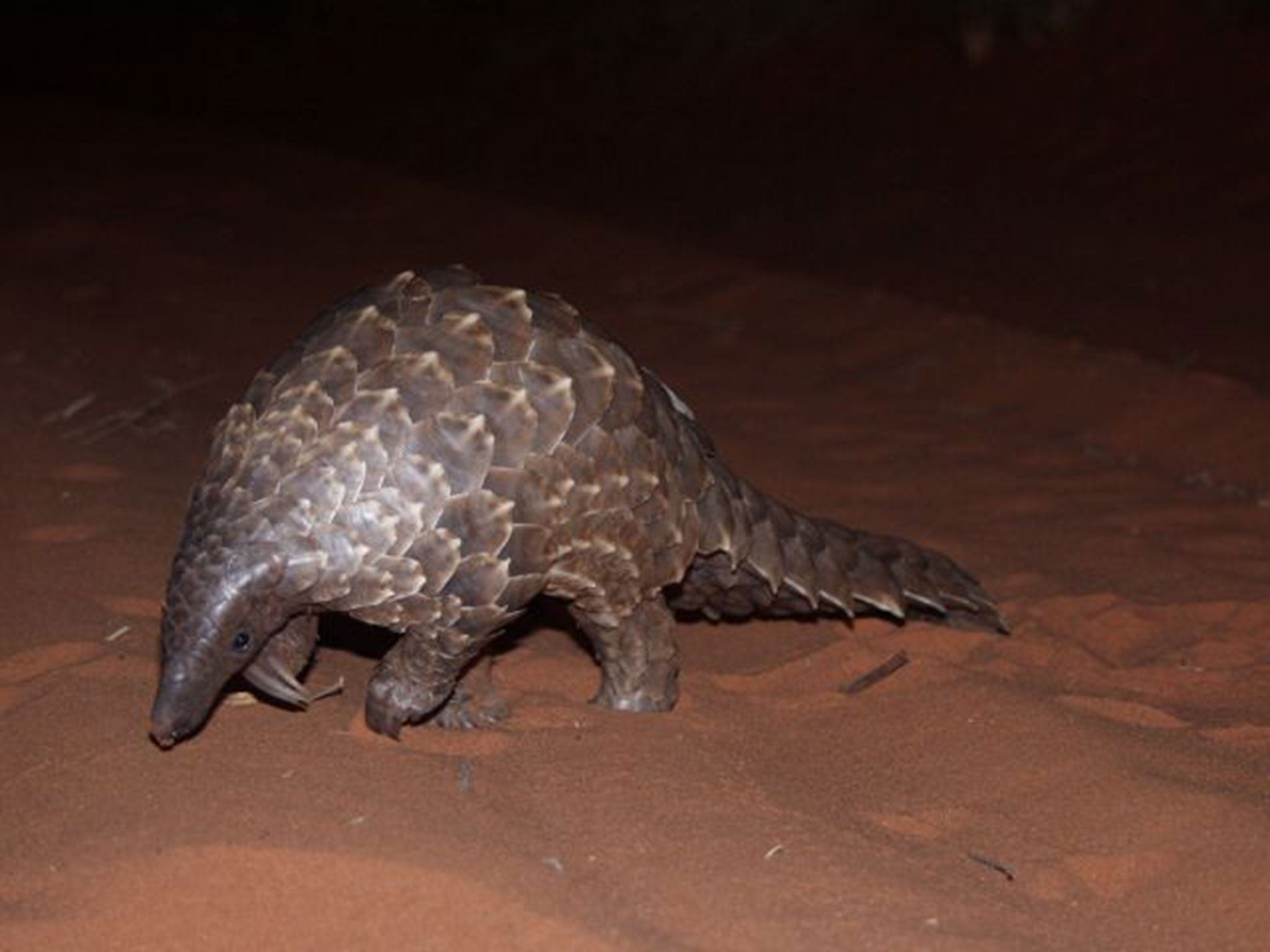African Pangolins at risk of extinction after becoming east Asian food favourites
More than a million pangolins are believed to have been snatched from the wild over the past decade

Your support helps us to tell the story
From reproductive rights to climate change to Big Tech, The Independent is on the ground when the story is developing. Whether it's investigating the financials of Elon Musk's pro-Trump PAC or producing our latest documentary, 'The A Word', which shines a light on the American women fighting for reproductive rights, we know how important it is to parse out the facts from the messaging.
At such a critical moment in US history, we need reporters on the ground. Your donation allows us to keep sending journalists to speak to both sides of the story.
The Independent is trusted by Americans across the entire political spectrum. And unlike many other quality news outlets, we choose not to lock Americans out of our reporting and analysis with paywalls. We believe quality journalism should be available to everyone, paid for by those who can afford it.
Your support makes all the difference.The pangolin, or scaly anteater, has become such a popular dish in affluent Asian circles that it is in danger of becoming extinct, according to a stark warning from a leading conservation organisation.
The International Union for Conservation of Nature (IUCN) has just added the four African pangolin species to its list of species threatened with extinction after an escalation of poaching driven by the rapid economic growth across much of the East. This means that all eight pangolin species – the other four from Asia – are now on the list, raising the prospect of the anteater being wiped out altogether.
Pangolins have long been caught and killed for their purported medicinal properties, which include being a treatment for psoriasis and poor circulation.
But increasingly the mammal is being prized for its meat as well, especially in China and Vietnam where it is regarded as a status symbol, and where 2kg pangolins sell in restaurants for more than £400.
More than a million pangolins are believed to have been snatched from the wild over the past decade. This has left very few in China, Vietnam and South East Asia, meaning that poachers are increasingly turning their attention to the more abundant – but rapidly diminishing – species in sub Saharan Africa, says Professor Jonathan Baillie, Conservation Programmes Director at the Zoological Society of London.
“In the 21st Century we really should not be eating species to extinction – there is simply no excuse for this illegal trade to continue,” he said, adding that pangolins have no proven medicinal value.
“Already in China we have seen what happens when we allow trade to continue uncontrolled. The same pattern will happen in Africa if we don’t put in stronger measures and ensure they are enforced. This is not hypothetical,” he added.
Pangolins are the only mammal in the world to be totally covered in overlapping, horny scales, made from keratin, the key structural component of hair, skin and nails. They vary in size from 2kg to 35kg. Some live in trees and others on land, while they feed mainly on ants and termites.
The name pangolin comes from the Malay word "pengguling", meaning "something that rolls up" – which is what they do when they feel threatened.
Join our commenting forum
Join thought-provoking conversations, follow other Independent readers and see their replies
Comments